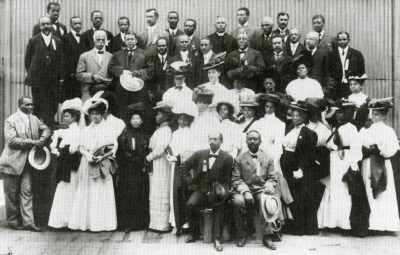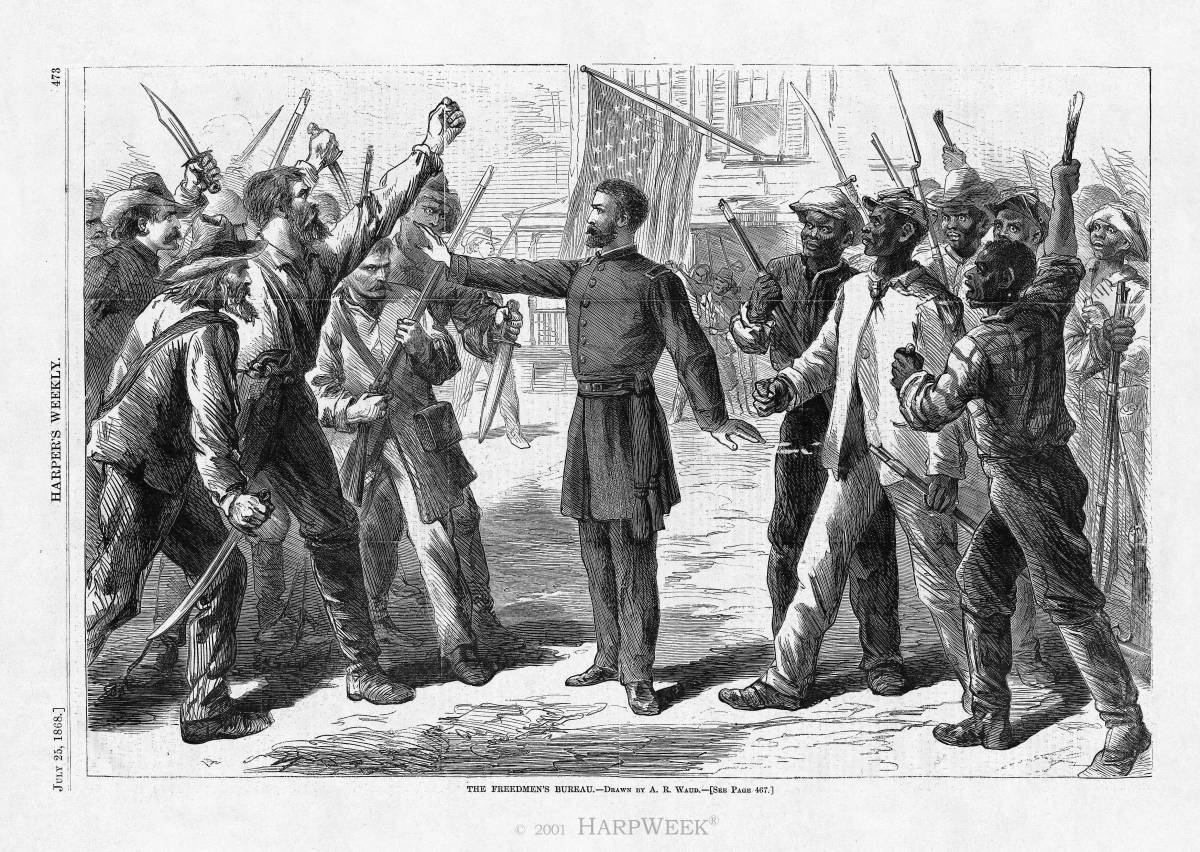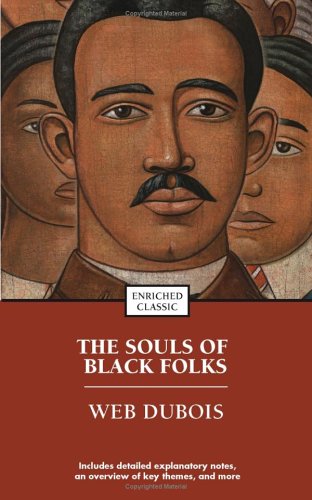Law Creating the Freedmen's Bureau
CHAP. XC.–An Act to establish a Bureau for the Relief of Freedmen and Refugees. Be it enacted by the Senate and House of Representatives of the United States of America in Congress assembled, That there is hereby established in the War Department, to continue during the present war of rebellion, and for one year thereafter, a bureau of refugees, freedmen, and abandoned lands, to which shall be committed, as hereinafter provided, the supervision and management of all abandoned lands, and the control of all subjects relating to refugees and freedmen from rebel states, or from any district of country within the territory embraced in the operations of the army, under such rules and regulations as may be prescribed by the head of the bureau and approved by the President. The said bureau shall be under the management and control of a commissioner to be appointed by the President, by and with the advice and consent of the Senate, whose compensation shall be three thousand dollars per annum, and such number of clerks as may be assigned to him by the Secretary of War, not exceeding one chief clerk, two of the fourth class, two of the third class, and five of the first class. And the commissioner and all persons appointed under this act, shall, before entering upon their duties, take the oath of office prescribed in an act entitled “An act to prescribe an oath of office, and for other purposes,” approved July second, eighteen hundred and sixty-two, and the commissioner and the chief clerk shall, before entering upon their duties, give bonds to the treasurer of the United States, the former in the sum of fifty thousand dollars, and the latter in the sum of ten thousand dollars, conditioned for the faithful discharge of their duties respectively, with securities to be approved as sufficient by the Attorney-General, which bonds shall be filed in the office of the first comptroller of the treasury, to be by him put in suit for the benefit of any injured party upon any breach of the conditions thereof.
SEC. 2. And be it further enacted, That the Secretary of War may direct such issues of provisions, clothing, and fuel, as he may deem needful for the immediate and temporary shelter and supply of destitute and suffering refugees and freedmen and their wives and children, under such rules and regulations as he may direct.
SEC. 3. And be it further enacted, That the President may, by and with the advice and consent of the Senate, appoint an assistant commissioner for each of the states declared to be in insurrection, not exceeding ten in number, who shall, under the direction of the commissioner, aid in the execution of the provisions of this act; and he shall give a bond to the Treasurer of the United States, in the sum of twenty thousand dollars, in the form and manner prescribed in the first section of this act. Each of said commissioners shall receive an annual salary of two thousand five hundred dollars in full compensation for all his services. And any military officer may be detailed and assigned to duty under this act without increase of pay or allowances. The commissioner shall, before the commencement of each regular session of congress, make full report of his proceedings with exhibits of the state of his accounts to the President, who shall communicate the same to congress, and shall also make special reports whenever required to do so by the President or either house of congress; and the assistant commissioners shall make quarterly reports of their proceedings to the commissioner, and also such other special reports as from time to time may be required.
SEC. 4. And be it further enacted, That the commissioner, under the direction of the President, shall have authority to set apart, for the use of loyal refugees and freedmen, such tracts of land within the insurrectionary states as shall have been abandoned, or to which the United States shall have acquired title by confiscation or sale, or otherwise, and to every male citizen, whether refugee or freedman, as aforesaid, there shall be assigned not more than forty acres of such land, and the person to whom it was so assigned shall be protected in the use and enjoyment of the land for the term of three years at an annual rent not exceeding six per centum upon the value of such land, as it was appraised by the state authorities in the year eighteen hundred and sixty, for the purpose of taxation, and in case no such appraisal can be found, then the rental shall be based upon the estimated value of the land in said year, to be ascertained in such manner as the commissioner may by regulation prescribe. At the end of said term, or at any time during said term, the occupants of any parcels so assigned may purchase the land and receive such title thereto as the United States can convey, upon paying therefor the value of the land, as ascertained and fixed for the purpose of determining the annual rent aforesaid.
SEC. 5. And be it further enacted, That all acts and parts of acts inconsistent with the provisions of this act, are hereby repealed.
APPROVED, March 3, 1865.

















